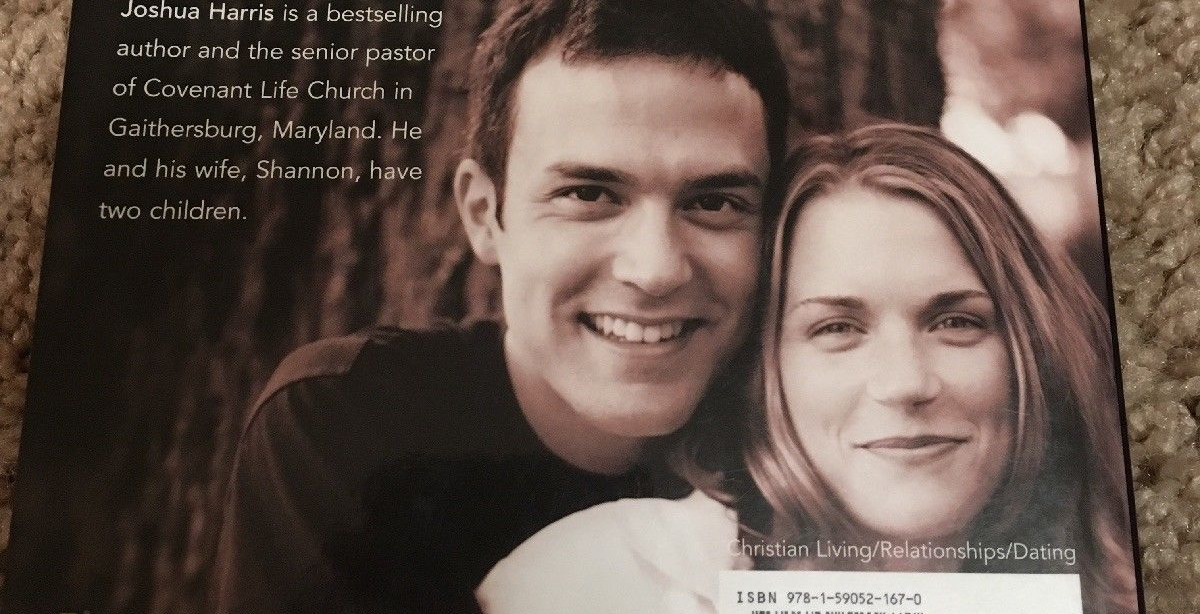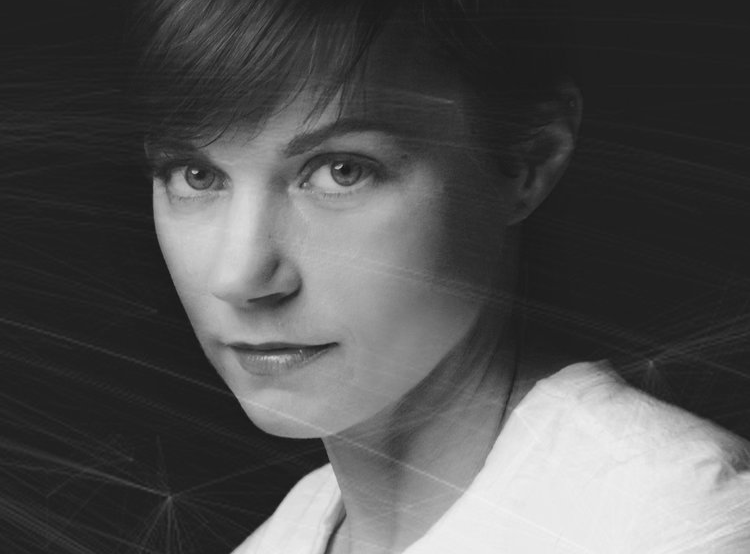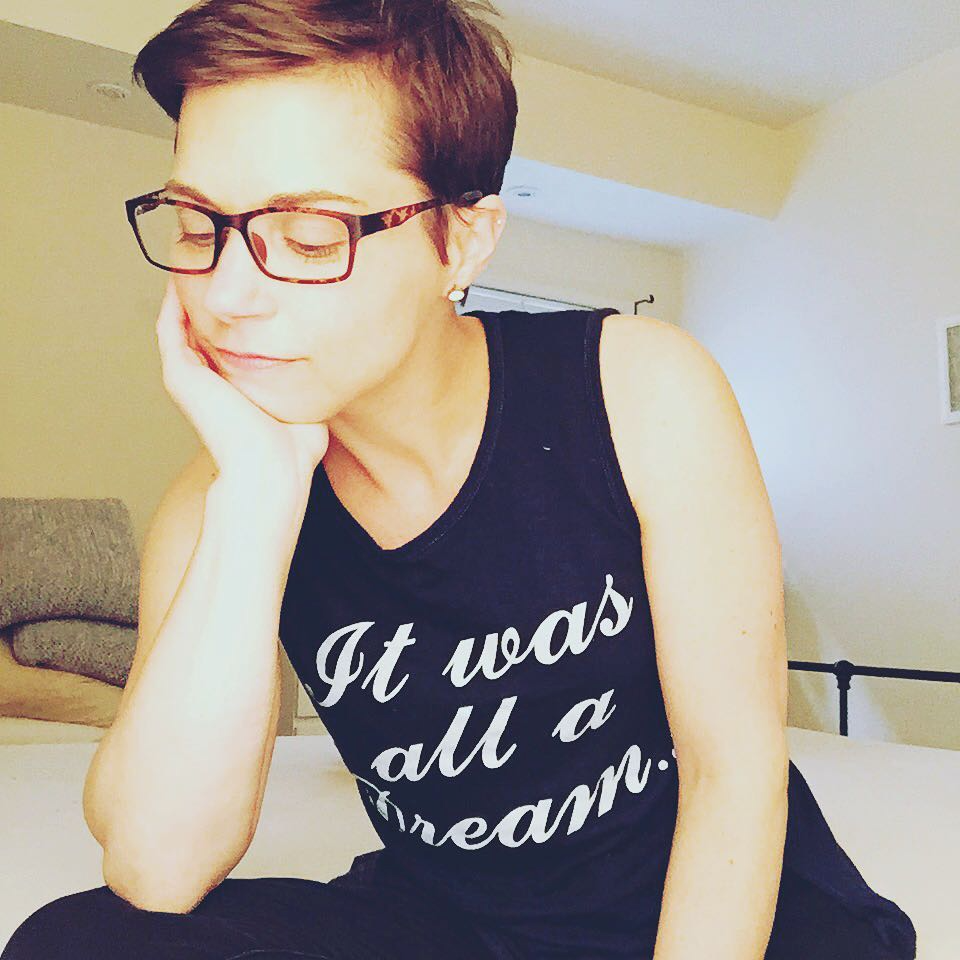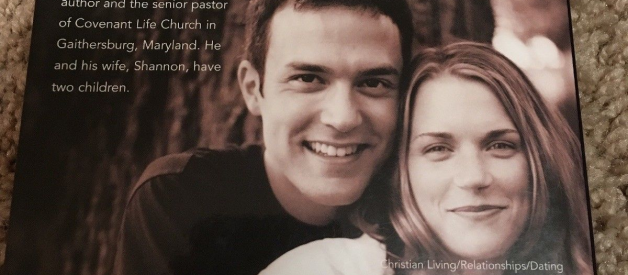
As Evangelicalism crumbles, she has a message? Be free.


The history of their marriage now seems like an old black-and-white movie, displaced in time. A religion to some other God. It?s narrated by him, always, in his follow-up book to I Kissed Dating Goodbye, showing the world how to do it right: Boy Meets Girl: Say Hello to Courtship.
I caught my first glimpse of her on the Sunday she got up in church and shared the story of how she?d become a Christian. Two and a half years earlier she?d had no interest in God. At the time she?d just returned to Maryland from college in New Hampshire, where she?d lived the typical party life. It was an empty life lived for herself-a life ruled by sin. Back home, she threw all her energy into her dream of becoming a professional singer. Soon a move to Nashville seemed the next sensible step up the ladder of stardom. That?s just the kind of person she was. Her parents had gotten divorced when she was nine, and her dad had raised her to be self-reliant.
In context, ?self-reliant? is bad.
So she went two decades, essentially voiceless.
Now, trying to find it again? That is a complicated task. But she takes something from the experience she?d not have had, otherwise? A religious message and presence. And a story that Harris himself couldn?t tell.
I might call it: the story of the human rejecting the shaming. If it was a Bible book I would call it: 1 Rejections, following the long, long book of Oppressions.
She?s been writing her text, line by line, moment by moment, in updates on Instagram. I like this one: ?Nearly a decade ruminating over my time in a place called church.?
Let me interpret. She was married for two decades. She felt it for one, then she spent another watching her marriage. From the sidelines.
?When we left, I think my body was in shock. My mind, too. I hadn?t had a moment to myself in years, and there was an overwhelming amount of material to sort through. There was also the sudden quiet.?
Here she?s talking about her new song, ?Invisible?: ?Since I became a version of me that excluded some of my most vital and colorful parts, naturally I felt invisible.?
She returns to commentary on churches she?s seen: ?Healthy churches don?t use fear, bullying or shaming. They don?t need to manipulate behavior or manage image.?
She?s writing a musical: ?My musical is going to explore themes like identity, authenticity, gender roles and power in the conservative church.?
And this is also a profound biblical insight, for the Bible is a musical comedy. After every major event, there?s a song!
Her musical has an amazing hero, who plays a submissive wife to a religious movement in its dying throes, still intent on suppressing the female it hated. She?d gotten pulled into the project of keeping it all going as the silent, supportive, submissive wife, her dreams of being a singer put on ice.
On July 23, she writes a long description of her current life, which has no mention of her husband. ?I would like to write a book about my ideas about theology, god and wholeness at some point . . .?
But it was the July 5 update that made everything clear, weeks before her her husband made the headlines. ?My fundamentalist conservative Christianity experience taught me to ignore my inner voice,? she writes in early July. ?I learned to distrust and override myself out of fear in an environment where those in authority held tremendous control over leaders and members.?
Hashtag #exvangelical.
And I think: that?s the voice the culture needs. The inner voice. That breaks free of control. That realizes it?s wise, and it?s enough.
In Evangelicalism, the woman is submissive and subservient, of course.
He moved to purge her previous contacts with men. ?I needed to hear her tell me that she loved me and that her past relationships were meaningless to her.?
He informs her that his sex drive is barely in control. ?Once when I told her that a particular pair of shorts were a little too short and were causing me to struggle, she quickly replaced them.?
It was all meant to be a public theater for Evangelicals to watch. To pay tickets to see. They were the ?role models,? the characters living out sex-suppression and shaming, of themselves and others.
There?s so many weird scenes. Months before they marry, he debates with God over whether he can lay next to her in a hammock. Joshua is for it. God is against it.
?You?re lusting.?Well, she is going to be my wife in four months.?Well, she?s not your wife today.?God does not want me to stifle my sexuality!?Stifle, no. Control for the sake of righteousness, yes.?
I think of her, laying there, watching the man she?ll marry having a debate with God over whether resting beside her is divinely approved.
It was a lonely road, I bet.

She posts lyrics she wrote as a teenager, before she knew him. Glimpses of an untold history, a girl who wasn?t represented in his depictions of her.
minds that are freeflower with imagination
I reflect on that girl, suddenly monitored, surveilled. They were the prince and princess of ?purity.? God wants her to be feminine ? or else.
Harris writes: ?I am convinced that the woman who understands and accepts with gladness the difference between masculine and feminine will be, without pretense or self-consciousness, womanly.?
In her photos and videos she?s drifted into a very androgynous style, and one reflects on how far she?s come? In her new music video for ?Invisible,? shot in San Francisco, there?s gay couples all around.
If she?s lesbian, I hope she preaches a sermon from Mary Rose D?Angelo?s scholarly paper, ?Women Partners in the New Testament.?
What matters is love. Or that?s what matters to God.
He confesses in his 2017 TEDx talk of his actual motives in his ?purity? crusade. ?Fear of messing up. Fear of getting your heart broken. Fear of hurting somebody else. Fear of sex.?
He pauses. ?Yeah.?
He didn?t talk again about his childhood sexual abuse that he?d noted once, making (minor) headlines with a 2013 comment in a sermon: ?Reading this past week about the allegations of sexual abuse was very difficult,? he said. ?I know it is for anyone. But it is very personal for me because I was a victim of sexual abuse as a child.?
He wasn?t able to tell the story of the next step. Or only in little pieces, painful fragments. In his Sojourners interview, back in February, Harris spoke of his realization that excluding women had facilitated the crisis over sexual abuse that ended his ministry in church.
?I think that we would have made better decisions if there had been women in on those moments,? he sighs.
One wonders where Shannon could have gotten inspiration for ?Invisible.?
?I do think that a very patriarchal, male-centered, low view of women has connections to sexual abuse in different cases,? he sighs.
It was how he saw her? And maybe how she saw herself. And what we shouldn?t let anyone be? Let?s see each other today.


